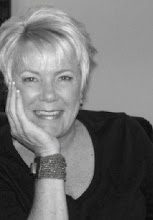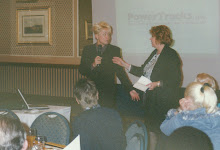Several years ago at some luncheon, I was seated next to a sales rep from Sports Illustrated magazine. He was in his early 30’s and, by most standards, financially successful. Our discussion led us to travel. I told him about my adventures of living on the island of Guam and, later, in Switzerland. He let out an audible sigh and lamented how he wished he could just pack up and go live in Paris. Underneath it all, he was an artist and his cushy life as a media rep just wasn’t cutting it.
Our neighbor spent several years working as a stock broker. His heart, however, was at sea where he had, for many years, before kids and mortgages, captained his own charter boat. One day, he up and quit his job, bought a catamaran in Tortola, and, to this day, runs charters through the British Virgin Islands. He recently returned from a transatlantic sail to Gibraltar. He doesn’t have the best cars, most fantastic house, or even a huge bank account but I can tell you, he is happy.
I think we humans are a convincing lot. We convince ourselves that, despite our burning dreams of becoming news anchors, writers, painters, or boat captains, when we become accountants, lawyers, or salespeople, it is somehow alright because we have achieved the best cars, largest homes, and fattest bank accounts. American dream and all that.
But there may come a time when you begin to think, and as the song goes, “Is that all there is?” I’m not talkin’ volume here but rather, asking, is this what my life has been reduced to? A car, a building, some cash? Where’s the adventure, romance, satisfaction?
When we read or hear about reinventing ourselves, it is almost as though we are required to come up with something new about ourselves. I don’t think this could be farther from the truth. I believe we are who we are from the start. The burning desire of being a news anchor, painter, writer, or boat captain was always there. And each of us knows why and how we got derailed and those reasons aren’t nearly as important as making plans to get back on track. It’s not time to reinvent yourself but time to self-actualize.
Famed psychologist, Abraham Maslow, in his Hierarchy of Needs, tells us there are several “needs” stages people must resolve before reaching what he termed, “peak experiences”. They are:
1. Basic survival – This is food, clothing, and shelter. If you are concerned about meeting these needs, this is where you will place your entire focus and cannot move onto the next stage until these issues have been satisfied.
2. Safety – Not entirely about feeling physically safe but is about feelings of comfort and believing you have some control over your life.
3. Esteem – This is about securing a place in your world where your esteem and belonging needs are met. We find this is in our community, at work, and in our family.
4. Self-actualization – Few seem to reach this level in which you are able to express your very essence. Operating at this level has you align your activities with your values, morals, and principles.
5. Peak experiences – Frequently referred to as being in “flow” state, reaching and then maintaining your life at this level has you living the life that was intended for you. In conducting your daily activities, time is of little notice. Everything you do, when aligned with your purpose, is seemingly effortless. Performing at this level has little to do with material rewards expectations. This does not mean rewards don’t come along, but activities at this level are not performed solely for the sake of receiving a bigger paycheck or having the ability to buy a boat. It is about living life by your standards.
There will be no shortage of articles on reinventing yourself. In fact, as of today, if you Google “reinvent yourself”, there are 803,000 websites that will give you some advice. But that’s not where you need to look. For the real answer, just look inside.
Executive Onboarding Note: The Importance Of The Confidence To Be Open To
Help
-
While executive onboarding, get help. If it’s offered, take it. If it’s not
offered, find it.
The post Executive Onboarding Note: The Importance Of The C...
7 years ago



